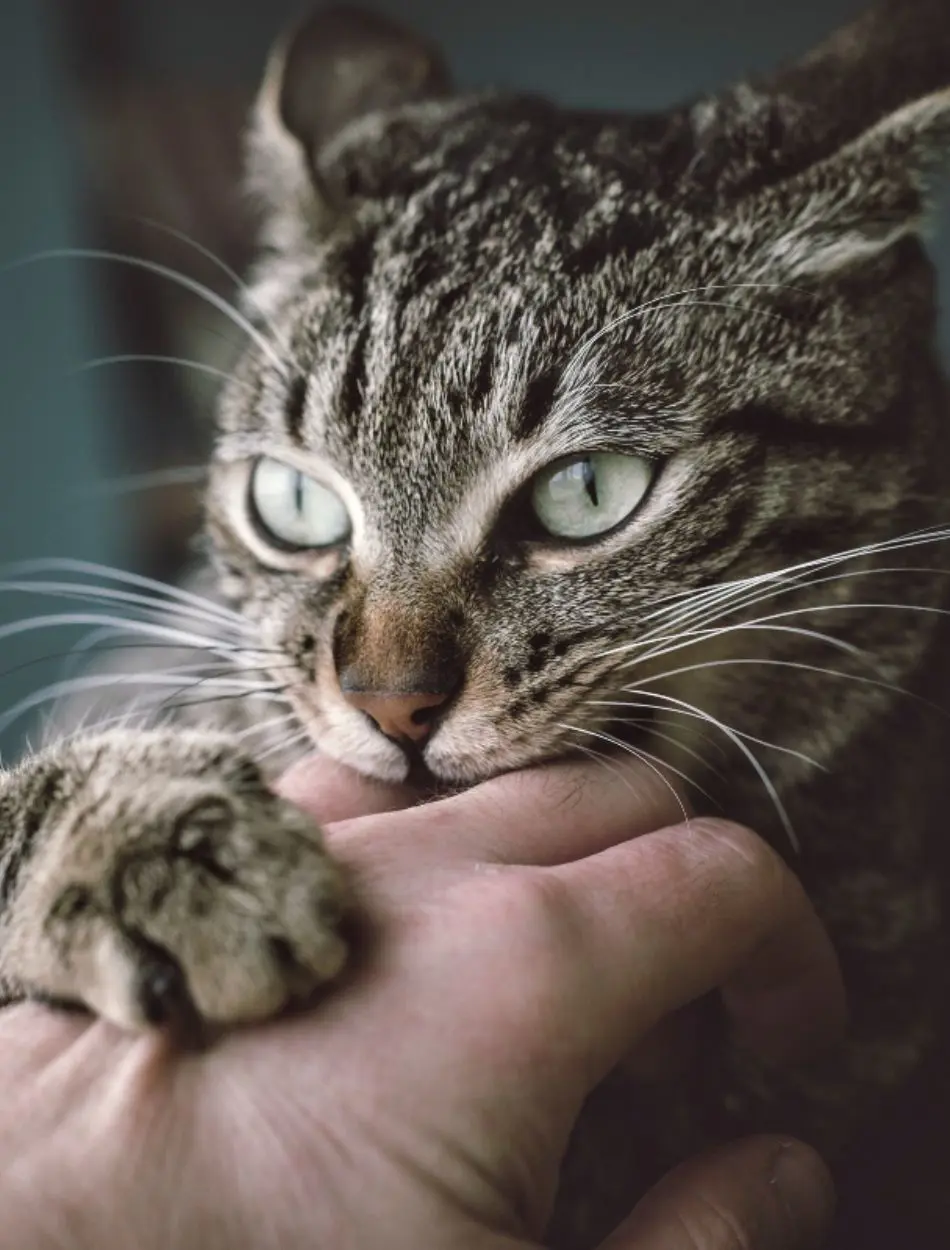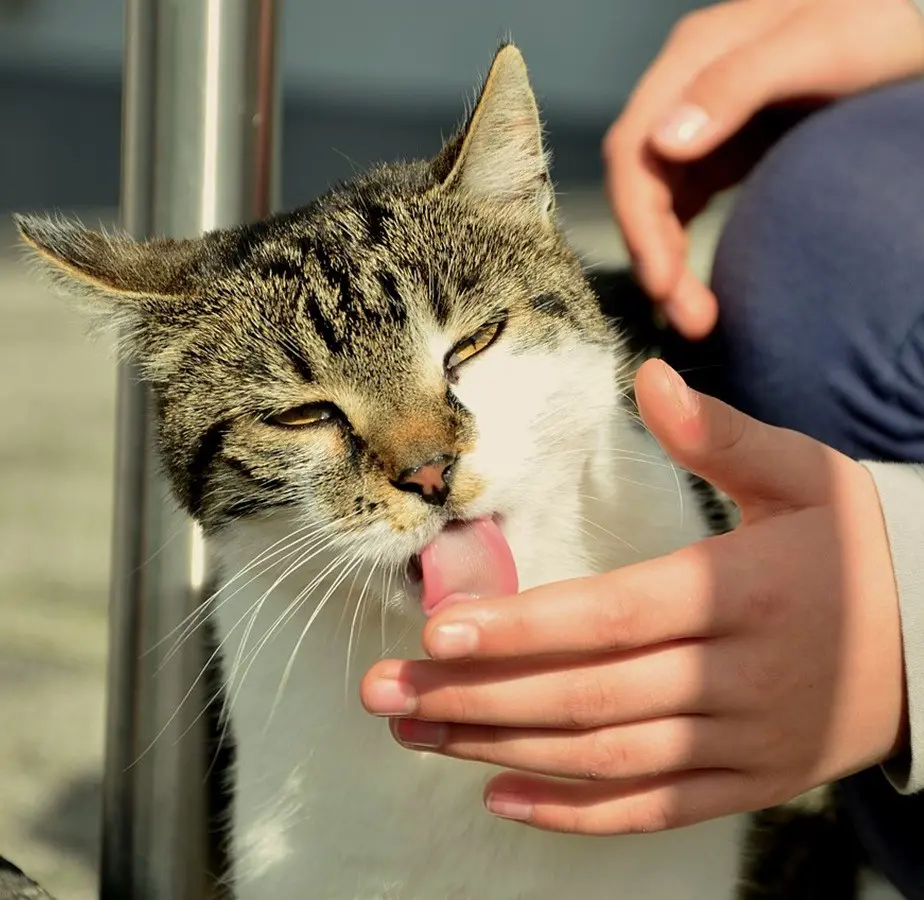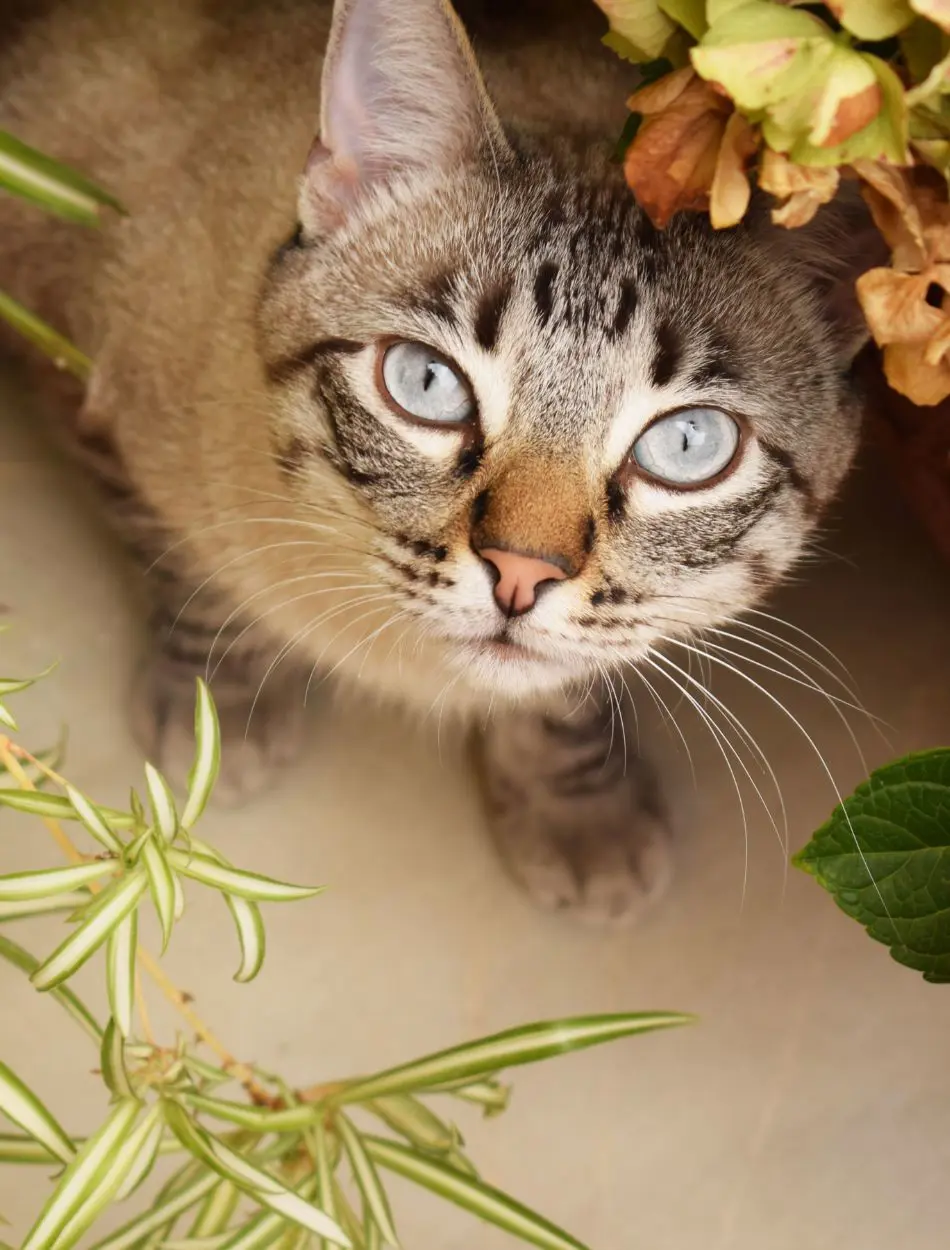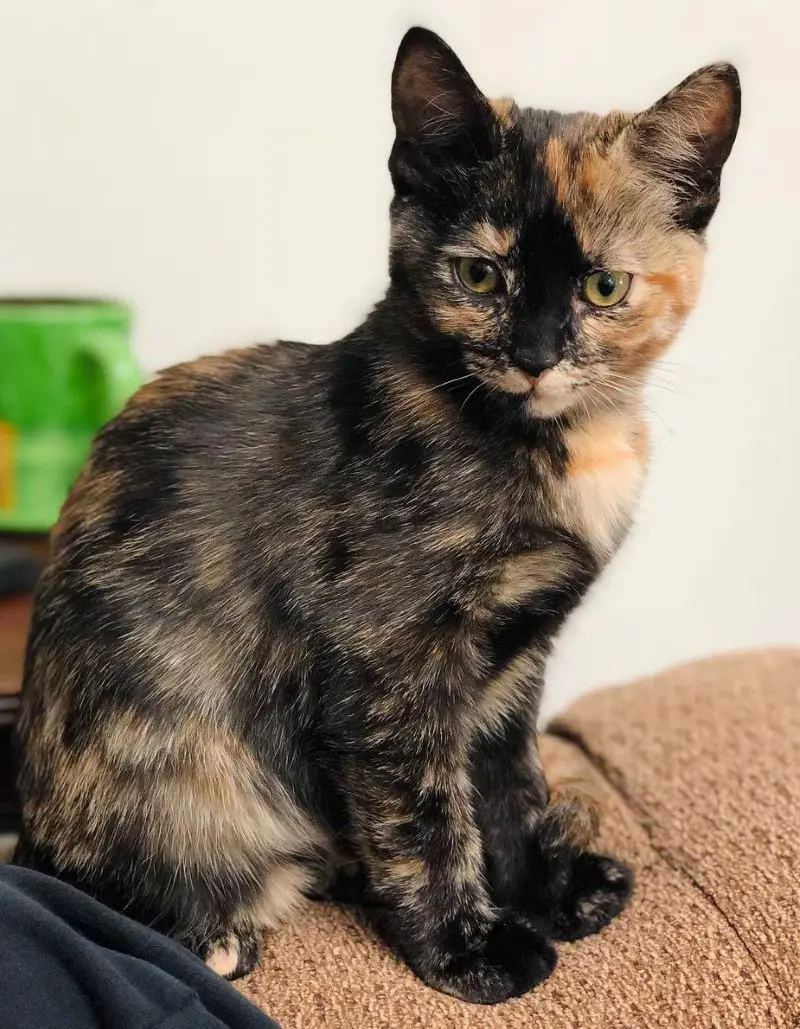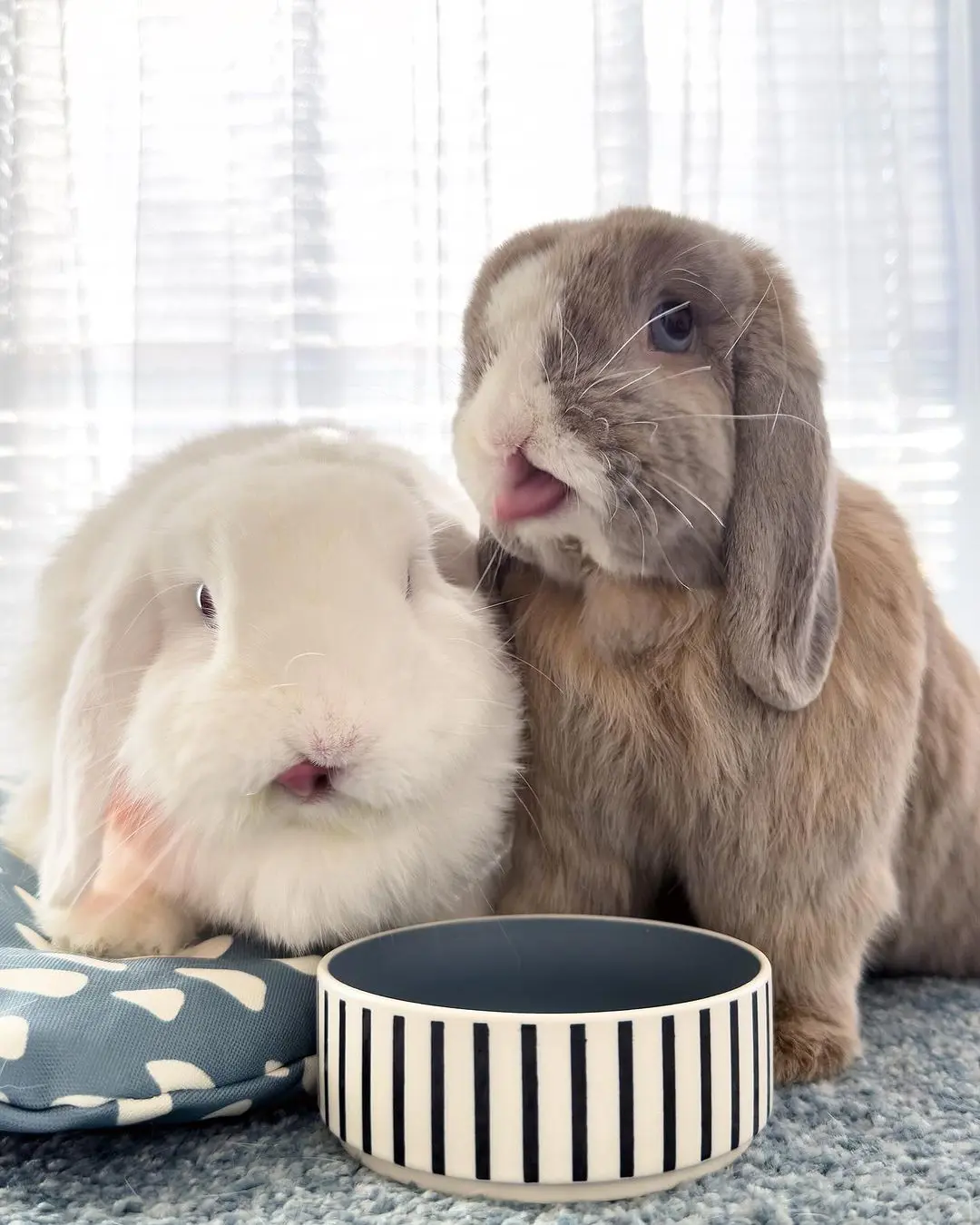18 Reasons Why Your Cat Follows You
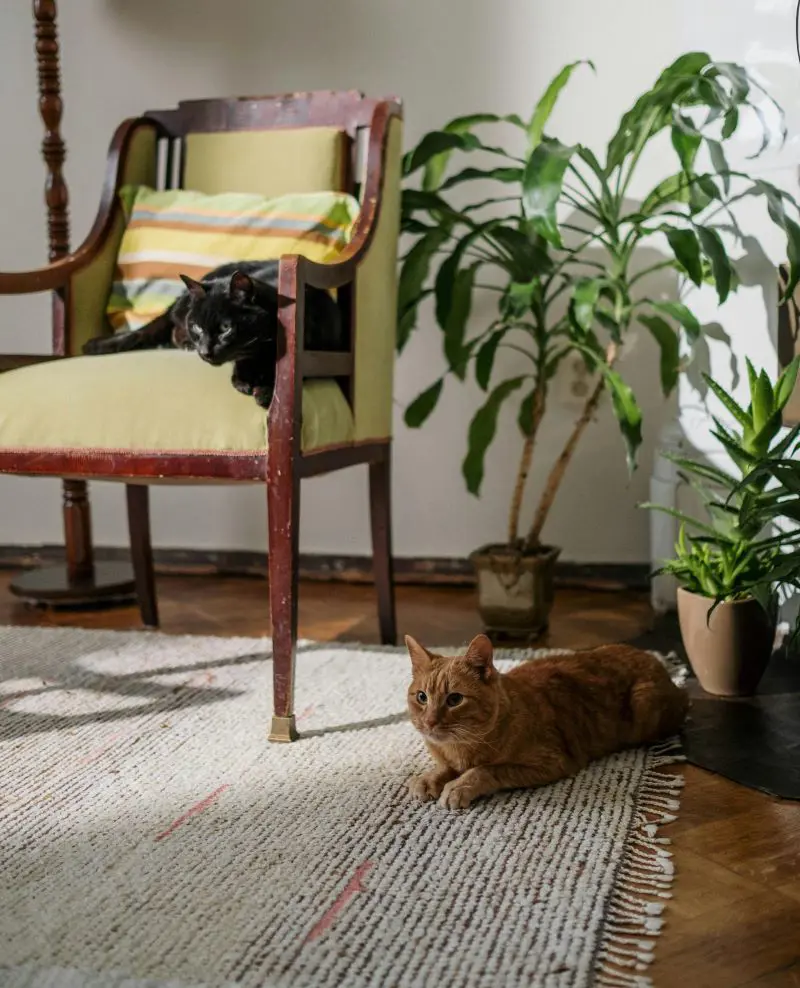
Being a lovely cat parent, they follow you around and your constant companionship can be both endearing and puzzling. It's being shadowed every time by a stalker, in the bedroom, kitchen, bathroom, or other parts of the household.
Being a cat parent, you might be feeling disturbed and annoyed. That way, we can help you more in-depth with why your cat follows you around, from seeking comfort to craving for treats.
1. Cat Wants Love
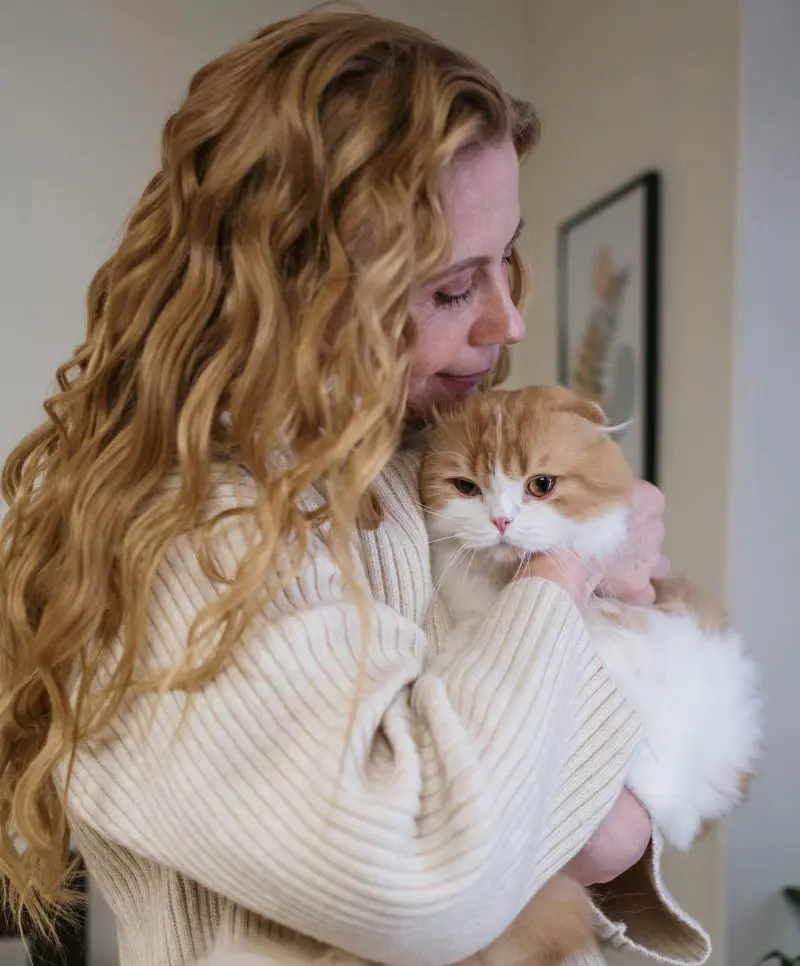
Cats can form strong social bonds and often want to spend time with their closest human companions. If there's one person, they trust more than anyone, they may start following that person around you everywhere.
Every cat lover agrees that their awesome pals are not just pets but are part of their families. They feel the same way about their human companion. Some cat breeds tend to be more affectionate than others. The sole reason for following you everywhere by your cat is that she enjoys being with you and may have a clingy nature or loves your companionship.
2. They Seek Attention
It's somewhat flattering to think your cat wants you to pay attention to him by calling his name, either patting him or playing with him. If you are busy and not paying enough attention, they may follow you around to remind you they exist.
The house cats don't have much opportunity to explore or mingle with other feline friends. They mostly wait for you to come so that they can enjoy time with you where they are given much attention. Sometimes, when you may be back from a trip or have been out of the house for long periods, you can see some signs of separation anxiety in your cat so you should engage in some quality time with them.
3. Hunger
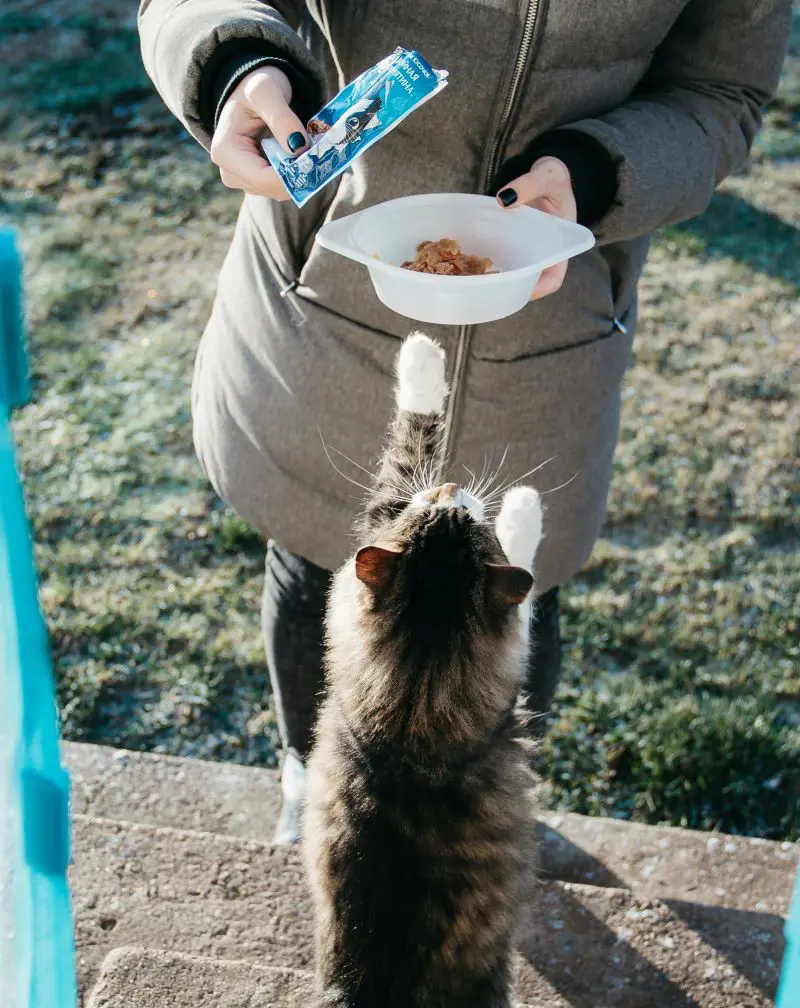
You may notice your cat following you or making eyes at you around the same time each day. It is quite a sign that they are ready for the next meal. They always look out for their next meal and follow you thinking you are the major food source.
Their natural dining habits include five small meals throughout the day. But they will mostly follow their human feeding routine, unmatched by their natural feeding schedule. When they get hungry they keep their human parents in the line of sight so that they can immediately chow down whenever the meal is served.
4. Marking Their Territory
Your kitty wants ample space when they start getting comfortable in their home. That's why it is essential to know how to set up a litter box and do it in a location, accessible to them.
Your feline friend may have their favorite napping spot where they like to nap every afternoon peacefully. So, they may interpret a closed door or visit the baseman as a barrier to their territory. If your cat follows you to the bathroom, they fear you will close off doors and limit their freedom of space. It may seem abnormal to no longer get into rooms, but it can explain why you hear scratching at the room door while doing some work.
5. They Are Curious
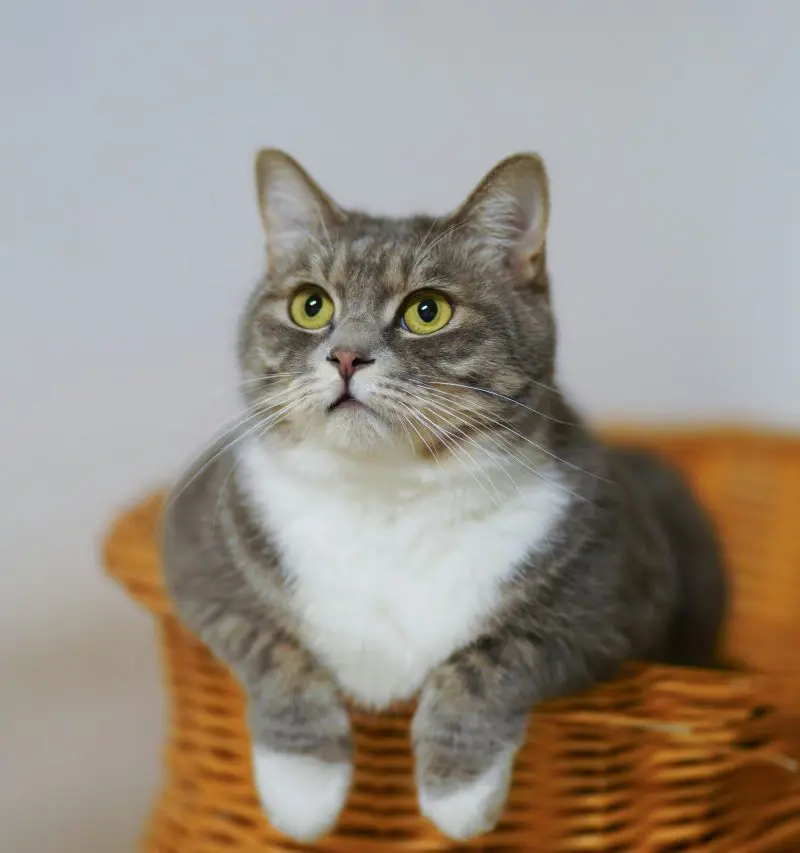
Cats are curious creatures and can get bored at home, unlike some kids on a rainy day. When they have nothing to do like hunting or exploring, they follow you everywhere to add some interest in their life.
You do things that your feline friend can't such as bringing in outside smells, opening doors, and things that don't follow routines. Therefore, when you do things, you are prey to him whom they have fun pretending to stalk while following around. While they follow you into a room where they are not allowed, these cats have something new to explore.
6. Feeling Sick
Cats also communicate largely through their body language, so if they are feeling sick or suffering from illness, they feel safer to stay close to their human companions so they start following you wherever you go.
When they are not feeling well, their behavior may change and become more attention-seeking. If your kitten seems to spend more time with you overnight and looks anxious and nervous when you leave, you must make a vet appointment. A sick cat might need more attention and care than usual. If your cat is unwell, they might be more interested in monitoring your movements so that they won't miss anything important following your routine.
7. Wants Something From You
Although the cats may not be able to speak, they can certainly communicate with their favorite human. They are smart and know how to get their needs taken care of. When a cat follows you, it is a sign that they are telling you something crucial, like what he wants.
They may indicate a path to a room he wants you to go to or look at an empty bowl and walk to and from the kitchen. Following you may be his way of asking you to play outside or cuddle. Also, they may feel insecure and want you to protect them in some way.
8. Separation Anxiety
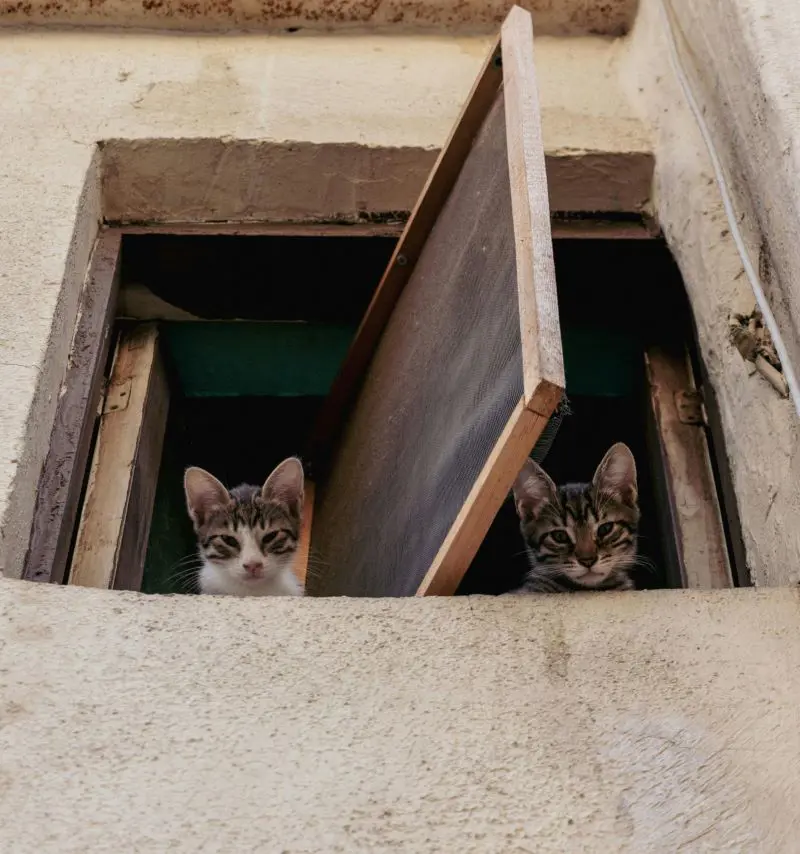
If your cat suddenly follows you around the house, they might be experiencing separation anxiety or stress due to major household changes. They are sensitive creatures and they need to feel secure and comfortable.
If you are tuned in to your furry friend, you will know if the reason she is tailing is an issue that needs to be addressed. Pay attention if she gets distressed whenever she is separated from you, becomes agitated when you try to leave, or shows destructive behavior due to separation. Some kittens need a close human companion to be around at home where they feel comfort to do anything they want. Separation from their human parents can make them stressed out so they follow you everywhere so that you won't leave them.
9. Seeking Warmth And Comfort
Cats are natural heat-seekers, and you as their human radiate warmth and comfort. Despite being known for their independence, they sometimes surprise us by following around the house. Even though curiosity and attention-seeking are certain factors, their desire for warmth and comfort plays an essential role during colder climates.
The comfort factor goes beyond just temperature. As a human companion, you represent a safe and familiar space, and following you allows them to stay close to a source of security and affection. Also, tracking you around the house guarantees they stay close to your heat lamp, keeping them toasty and content.
10. Boredom
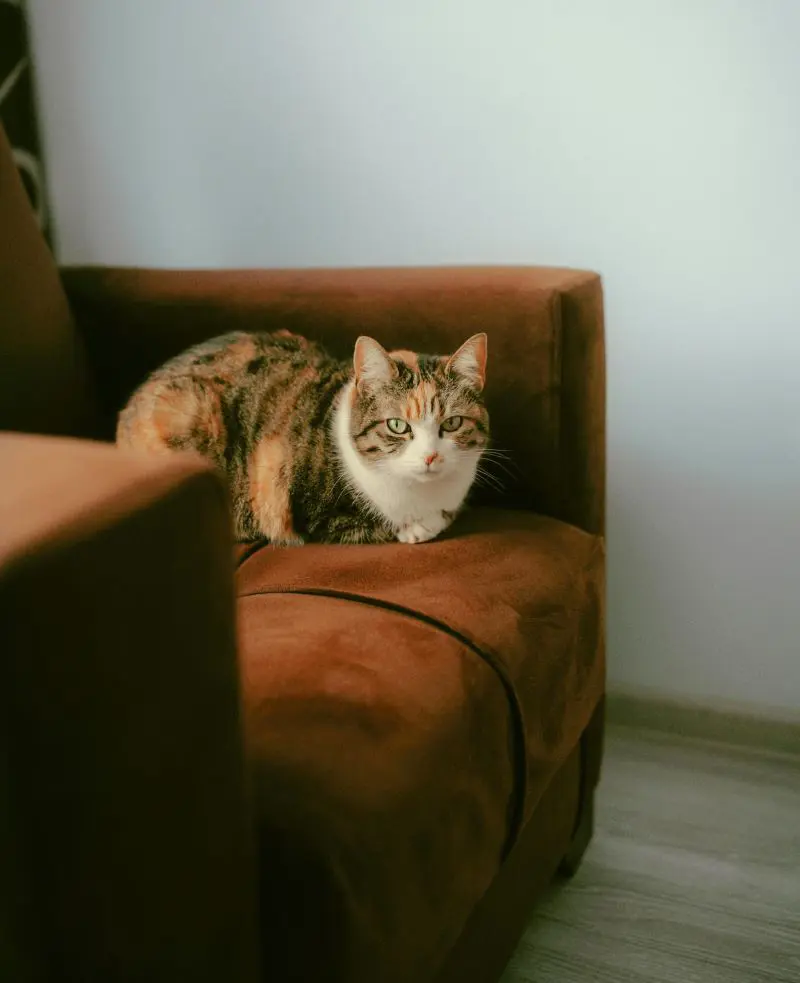
Your awesome pals may spend a lot of their time sleeping but still can get bored. They are active and intelligent creatures and require physical and mental stimulation to prevent boredom and frustration.
They will follow you so that their boredom can be treated as you being a human companion. Sometimes they may try to get you to play, and show destructive behaviors, meowing, yowling, and aggressive activities. The best way to deal with a bored cat involves a regular playtime schedule and other enrichment activities like scratching posts, cat trees, and interactive toys.
11. Your Cat Is Pregnant
A female cat may begin to follow you everywhere if she is in heat or becomes pregnant. Many cats seek the comfort and companionship of their trusted human when they are about to give birth.
Signs of pregnancy in cats include changes in appetite, a swollen belly, and enlarged nipples. If you suspect your cat is pregnant, you will want to make an appointment with your vet right away to confirm the pregnancy. A comfort area for your pregnant cat to lie down on their body is soft bedding and toys in a warmer place that may be next to you. Maintaining your routine can also help soothe her distress during pregnancy.
12. Bathroom Buddy
It's no secret that where there are toilets and showers, there are smells. Most of these are no longer detectable to our noses. But their sophisticated sense of smell can pick up and analyze their aromas. Even though the bathroom might be a warm haven, especially with steamy showers, some cats feel secure being near you, even in a private space.
If your cat likes a cooler place to lie down or enjoys fun, the bathroom can quickly become his playground. Also, being a territorial animal, they wanted to know what was happening inside their territory after marking. So, they follow you around curious to know something new activity or smell through their noses.
13. Seeking Safety
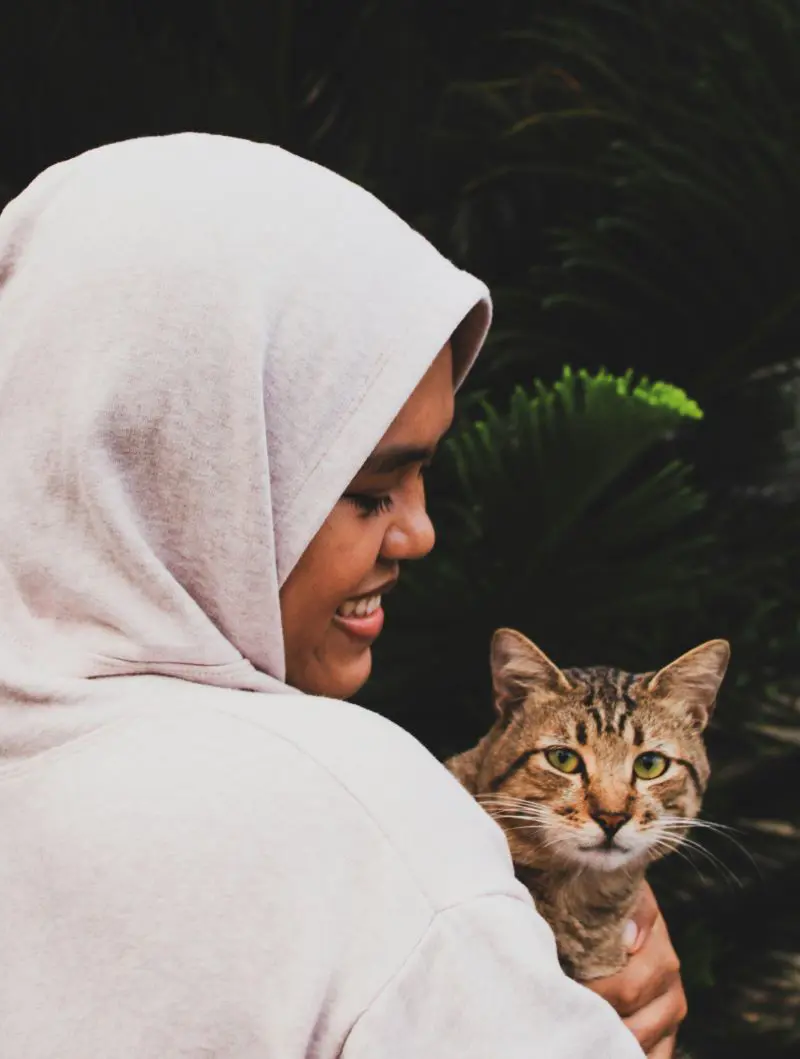
Some cats, especially the anxious ones, feel safe in their human presence. Following you around might be their way of feeling safe and secure. Knowing you are nearby can reduce their anxiety level, and provide a sense of calm in an unfamiliar or overwhelming environment.
The closeness allows them to observe their surroundings while relying on the perceived safety of their trusted companion. Additionally, cats may diagnose their owner's movements and behavior as cues for safety, strengthening the bond between them. Being with you makes them secure from external threats, feeling a sense of trust and a sense of security, while their companion is by their side.
14. Establishing Routine
Cats are creatures of habit and thrive on routine, and following you around might be their way to establish their predictable schedule. Knowing your schedule allows them to prepare for mealtimes, playtime, or even your evening snuggle session on the couch.
They might notice you heading to the kitchen around breakfast time, triggering them to follow you for a meal. Similarly, your evening couch session might prompt them to follow you into the living room for interactive fun. This constant shadowing allows them to anticipate your movements and adjust their behavior accordingly. By following you throughout the day, they create their personalized routine aligning with yours and ensuring their needs are met.
15. Protective Of Their Owners
Although dogs are household pets more commonly known for their sense of protectiveness and loyalty, cats can also be protective of their owners. The cats anticipating an external threat may show characteristics like hissing, growling, crouching, or having dilated pupils.
They can display their loyalty by standing by your side or cozying up to you whenever you are not well or they see a change in your behavior. Your feline friend might check for any suspicious activities or patrol their marked territory with their trusted companion, by their side. Their watchfulness and awareness show their love to stick for you when they think you need it.
16. Craving For Treats
Similar to fulfilling their hunger, sometimes they follow your craving for their treat, hinting that a delicious treat would be much appreciated. They can quickly learn that certain behaviors will lead to treats as a reward and following you around might be their way of grabbing your attention towards giving them treats.
Giving them a treat often involves interaction and positive reinforcement, even if unintentional, as treats are powerful motivators. They might follow you with a specific head tilt that you've come to associate with treat time, further strengthening the connection between their behavior and reward.
17. Missing Their Playtime
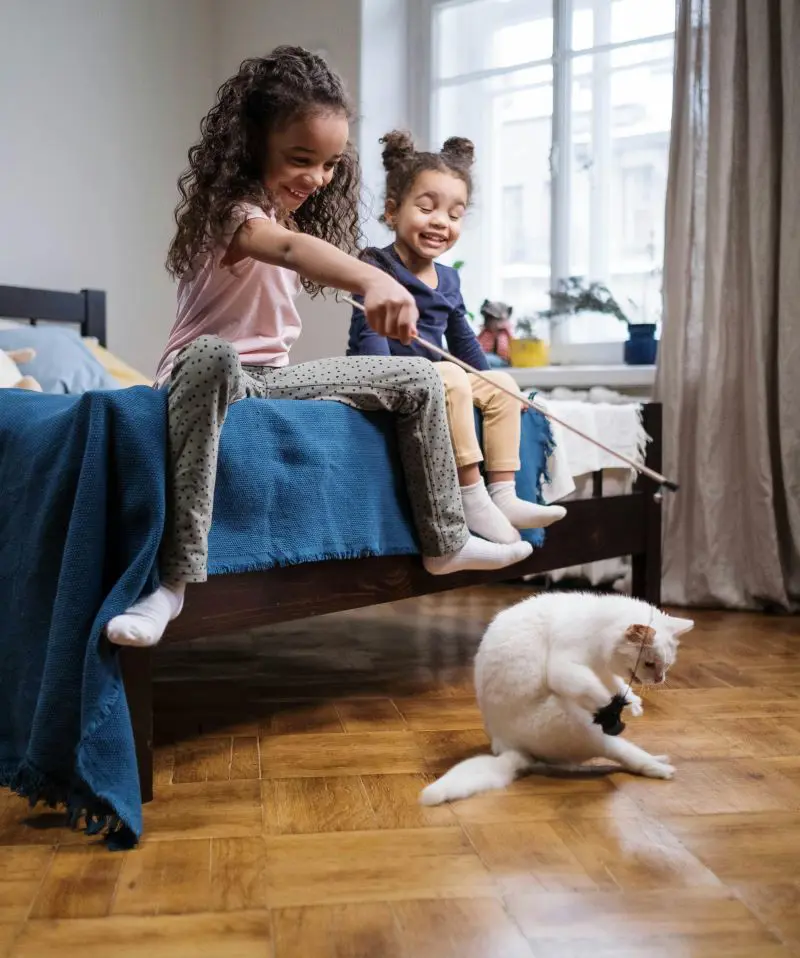
Your pawsome pals are naturally energetic creatures with a strong instinct to play. So if your cat has become your constant companion, it might be a sign they may cave for their quality playtime together.
Their presence becomes a way to get your attention and nudge you towards interactive entertainment. They might weave between your legs, bat at your hands, or vocalize with playful meows attempting to create your interest in a game of chase, a feathery wand adventure, or a laser pointer chase. By knowing their behavior as a request for playtime, you can engage them in stimulating activities, creating a happier and more fulfilled feline friend.
18. Need Cuddling Time
Cats sometimes show their constant presence as they express a desire for some good old-fashioned cuddling sessions. Known as the affectionate creature, following around can be their way of maneuvering you into a cuddling position.
They might weave between your legs as you walk, brush up against you, or circle your feet, all attempts to get your attention and initiate some snuggling. Following you allows cats to feel content, and curling on your lap becomes their ultimate goal. This physical interaction strengthens your bond and provides your pawsome pal with the warmth and affection they crave through cuddling.
Recent posts
Cats
How Cat Love Bites Happen And Its Respond
You may wonder about the various activities of your cats, among which you may wonder about their biting you, mainly while you are petting them. You may wonder how bites happen and how to deal with them. As the term suggests, it is known as kibble and...
Are Essential Oils Safe for Cats?
Cats interact complicatedly with different chemicals and ensuring safety means one has to be aware of these diverse complications of chemicals in a cat's body. Knowing precisely what is safe and possibly hazardous for your cat can become very importa...
Why Does My Cat Lick Me: 12 Possible Reasons
If your cat licks you, this might be due to several reasons rooted in their instincts and social behaviors. Cats view their human companions as part of their social circle; hence, this seemingly simple action carries a profound significance in cat-hu...
Why Is My Cat Losing Weight? 18 Common Reasons
Noticing your cat losing weight unexpectedly can be concerning. Weight loss in felines results from different factors, which range from simple and food-related to serious and medically important. These may include something very simple or even ...
Hairballs in Cats: Causes And Symptoms
Hairballs are among the common problems that cat owners face. If they occur, they can lead to different symptoms and are an indication of underlying conditions sometimes. Any pet owner taking care of their cat should have proper knowledge of the caus...
15 Amazing Facts About Tortoiseshell Cat
Tortoiseshell cats, also known as torties, are a type of cat with a unique coat pattern. Its fur is characterized by a mix of two colors: black or dark brown and orange or red. The pattern can vary greatly, with some cats having patches of color that...
